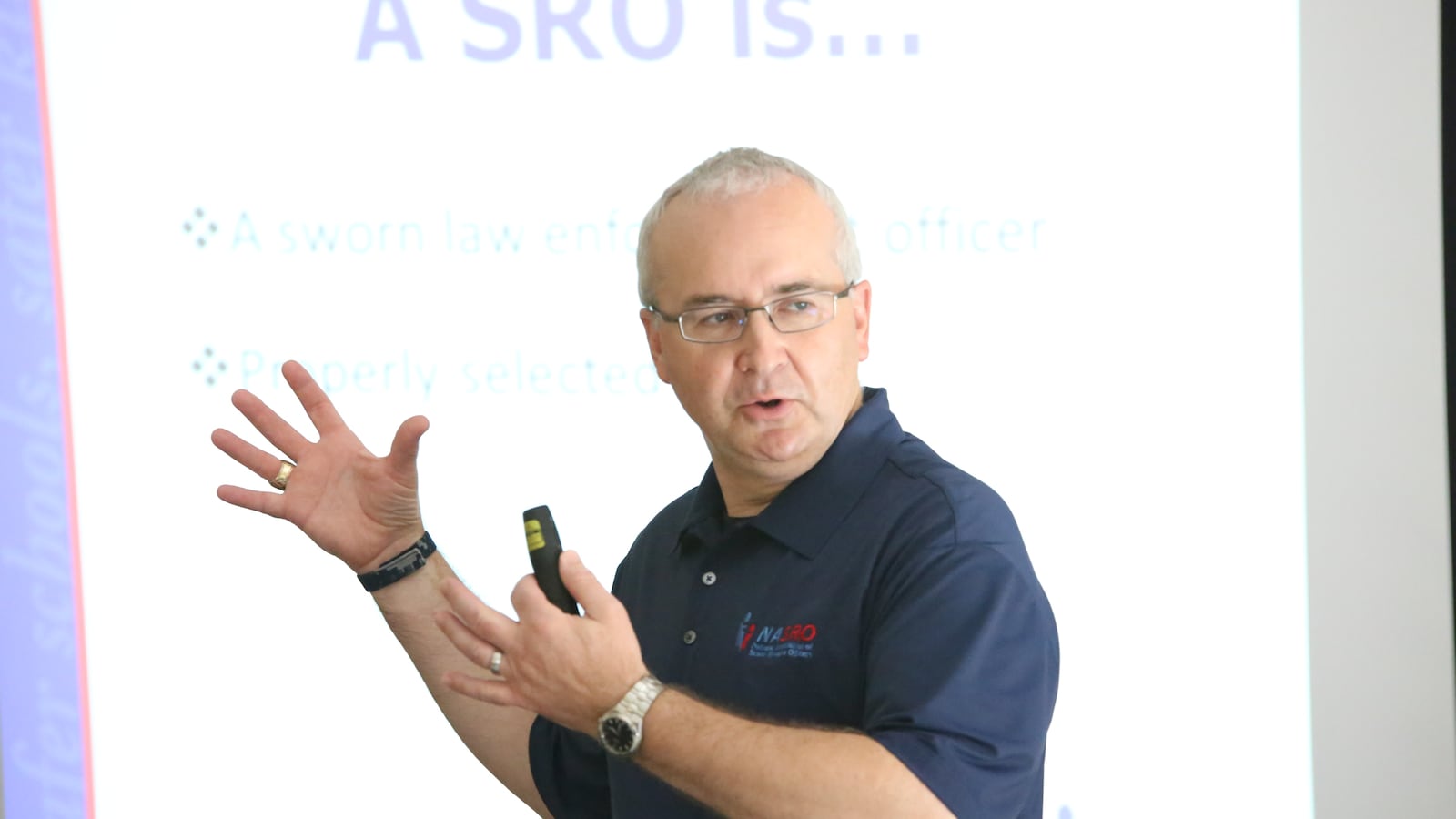Facing a deadline to overhaul its school policing system by the start of the new school year, Chicago is moving forward in one key area: training officers.
For the first time since 2006, when police disbanded the school officers unit, all the 200-some Chicago police who serve in schools or supervise officers will receive training developed specifically for school officers on how to respond to disciplinary incidents and mental health crises in schools.
The training responds to requirements of a federal consent decree governing Chicago police. The city has launched reforms to policing, after officer shootings of young men of color that sparked protests around the country.
Mo Canady is conducting Chicago’s training. He is the executive director of the Alabama-based National Association of School Resource Officers, a leading group training police who serve in schools. Canady, a former police officer, has trained school police in Los Angeles, Atlanta and Pittsburgh.
Along with the training, the federal consent decree overseen by independent monitor Maggie Hickey instructs the Chicago school district and police department to develop clear guidelines for hiring, overseeing and evaluating school police officers by next school year.
The consent decree requires public engagement, although the school district’s Office of the Inspector General and community groups have complained of a lack of outreach.
The school district and police have scheduled three upcoming public meetings on school policing — see below for a schedule.
Chalkbeat Chicago caught up with Canady in Chicago to ask a few questions:
What brought you into this work?
I was a police officer [in Hoover, Alabama] for 25 years, and halfway through my career I got promoted and was moved into the school services division to supervise the SRO [school resource officer] program. I loved working with youth. During that portion of my career, I became a board member with NASRO [the National Association of School Resource Officers] and after I retired as a police officer I was hired to be the executive director. Our speciality is training law enforcement officers on how to work effectively in a school environment.
What makes the position of school police officer unique?
For the ideal security officer, the No. 1 goal should be to bridge the gap between law enforcement and youth. The ideal officer is carefully selected and then specifically trained in the SRO [school resource officer] triad concept — the role of law enforcement, the role of an informal counselor and the role of being engaged in the educational process.
You’ve only had a few days of training, but what have you covered so far?
We have covered the foundations of school-based policing, so we have also been teaching them how to function in a classroom environment, how to be involved in the educational process and the learning process. We have also been talking about special education and special-needs students.
For the first time, Chicago is putting together a written agreement between police and the school district on how officers behave in schools. What are your recommendations?
That is where a partnership between the school district and the law enforcement agency is so critical. Right now, the issue of who supervises the SRO is a critical one. It is sometimes difficult for the principal of a school building to understand their SRO may very well not be someone that they supervise.
While they are answerable [to a district commander], the SRO is there to work alongside the principal and to support that principal and help to maintain a safe school environment. At times a principal has been frustrated… that has created issues certainly.
The police department is under a federal consent decree for a pattern of abuse. Many of the changes outlined in the report relate to school police. How does that impact your work?
That really has no bearing on what we are doing. At the end of the day we really want to help officers be more effective.
Upcoming public meetings on school police:
July 17, 6 p.m. to 8 p.m. at Eckhart Park in Noble Square
July 20, 10 a.m. to noon at Hamilton Park in Greater Grand Crossing
July 22, 6 p.m. to 8 p.m. at Piotrowski Park in Little Village

